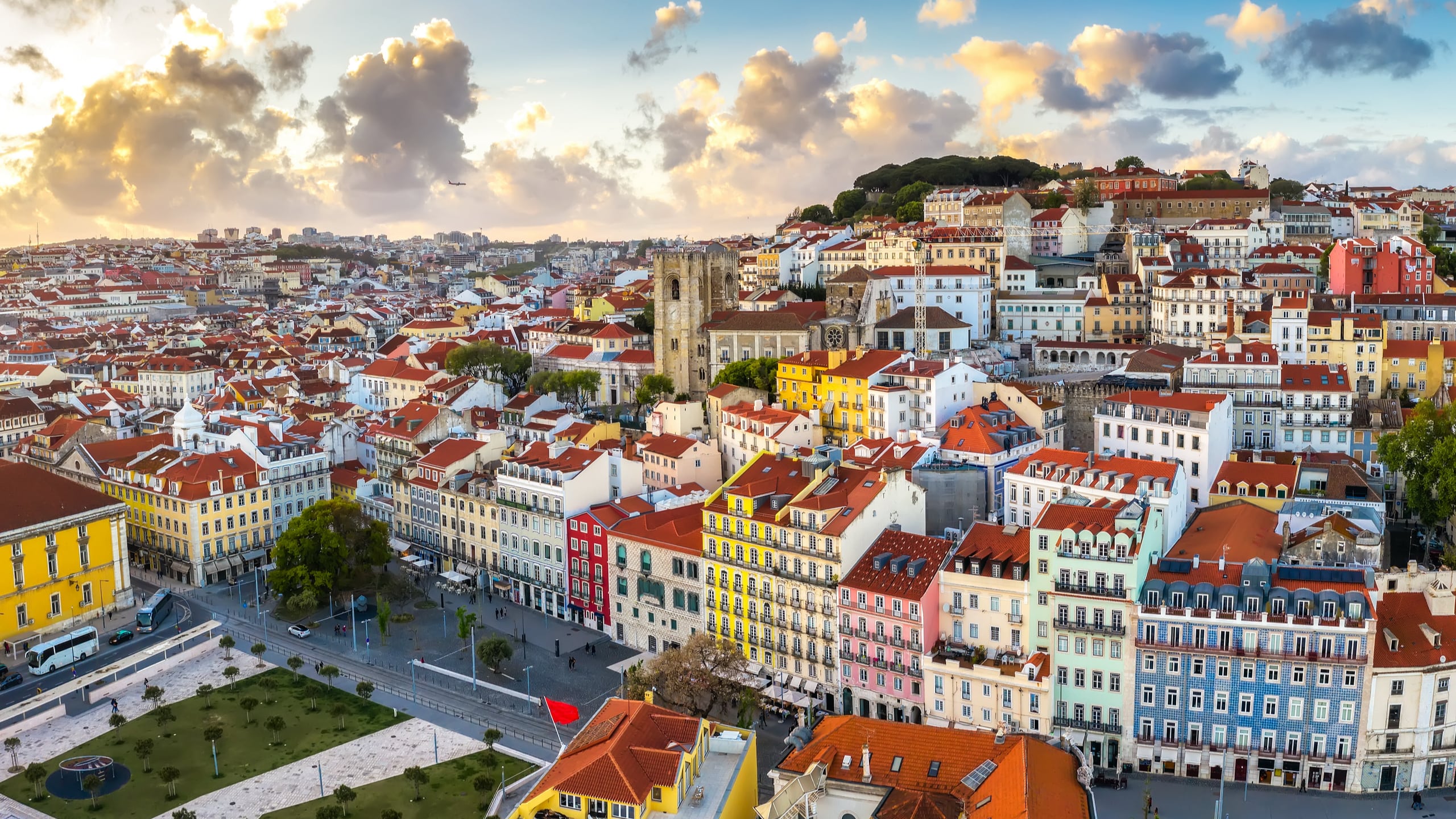China’s Ultra-Rich Are Losing Their Favorite Escape Route to Europe
For the first time ever, more Americans are tapping Portugal’s golden visa program than their Chinese counterparts.
For wealthy Chinese looking to flee stifling pandemic lockdowns and political tensions, Portugal has a lot to offer. Mild weather, a laid-back and affordable lifestyle and investor visas that allow access to the whole European Union — all for as little as 350,000 euros.
It’s a pitch that’s lured thousands of Chinese over the past decade, helping to reshape Portugal’s urban landscape as part of a tide of new money that reached $1 billion annually at its peak in 2014.
It’s not for lack of demand. Quite the contrary: more wealthy Chinese are attempting to leave — or at least prepare a backup plan — as the country’s Covid-Zero policy has dented economic growth. Investment migration consultancy Henley & Partners estimates 10,000 high-net-worth residents are seeking to pull $48 billion from China this year. In the past, some have used the golden visa program as an escape route.
This time around, impediments are mounting from governments on both sides. The EU has increasingly made clear its disdain for residence and citizenship-by-investment programs, currently offered in some form by 10 member states, with Cyprus and Malta already scrapping their golden passport initiatives after coming under scrutiny from the bloc. Portugal has an application process that requires an in-person interview — something China’s Covid travel restrictions have made almost impossible.
The dual pressure is putting the once-popular programs in jeopardy continent-wide, with 2022 shaping up to be the first year in which Chinese investors aren’t the biggest group getting Portugal’s golden visas. It leaves wealthy Chinese with dwindling options and business leaders and real estate brokers in Portugal with a shrinking source of reliable foreign investment.
“A lot of Chinese investors made investments after the golden visa program and started working with the country,” said Bernardo Mendia, secretary general of the Portugal-China Chamber of Commerce and Industry.
Portuguese real estate was a “dead market” before China’s government policy encouraged companies to seek investments abroad in the 2010s, he said. “Lately, the political direction has changed.”
Portugal’s so-called golden visas were conceived a decade ago as part of a wholesale effort to fix its public finances following a 2011 bailout from the EU. Another part of the plan was privatizing state companies. The combined result was the country’s biggest-ever wave of Chinese investment.
Chinese tycoons bet big, snapping up stakes in energy distribution, health-care, finance, construction and aviation companies. The interest went beyond corporate titans: Thousands of affluent Chinese acquired Portuguese residency through the golden visa program. Official figures show the country has doled out about 10,000 investment visas since 2012, mostly to Chinese citizens.
However, just 16% of successful applicants are Chinese so far this year, down from 81% in 2014, according to data from Portugal’s Immigration and Borders Service and Investment Migration Insider, a website tracking residency and citizenry.
Citizenship Springboard
Portugal’s program grants residency in exchange for a minimum 350,000 euro ($358,400) investment in real estate or 500,000 euros in an approved local venture fund. As the lowest investment requirement in Europe after Greece, it’s often used as a springboard for EU citizenship.
Yet European Commission President Ursula von der Leyen is now warning that the region’s values “are not for sale.” It’s a stark contrast to the early 2010s, when countries like Portugal offered up state companies from almost every sector, said Philippe Le Corre, a researcher at Harvard University. He was there when Portugal’s public news agency Lusa signed a partnership with China state media giant Xinhua in 2016 — the kind of deal that would seem unlikely these days.
Starting this year, Portugal restricted the golden visa program in Lisbon, Porto and high-density coastal areas, pushing investment to the less-developed countryside, which proponents see as an unrealized opportunity. Commercial real estate in Lisbon, however, isn’t covered by the restrictions, so some developers are selling serviced apartments that will allow buyers in Lisbon to apply for a golden visa, while others are setting up real estate funds so potential investors can buy a stake.
“Golden visas are important for how much they’ve helped the economy,” said Alexandra Victoria-Bonte, co-founder of Lisbon-based One Stop Properties, and associate of a private equity fund that invests in Portuguese real estate. “A lot of people think of it as a golden ticket, but it’s not. It’s much more than that — a secure investment that’s going to give a high yield.”
She said Portuguese officials were pressured to change the rules because many investors put properties on Airbnb or left them empty. That raised concerns about the impact on communities and housing affordability, especially in Lisbon, where foreigners have priced out many locals.
The additional barriers haven’t stopped Fong Tak-ho, 54, who bought four properties in Portugal since first visiting from Hong Kong with his wife five years ago. He submitted his golden visa paperwork in July, after the process was interrupted by the pandemic, and moved to Lisbon earlier than planned after street protests swept through Hong Kong and some of his friends were jailed.
“It was really nice and we thought ‘maybe we could retire there,’” he said of his first visit. Fong, who works in media and lives near Lisbon’s Chinatown, just hopes he isn’t caught up in the backlog of investors and Ukrainians fleeing the war.
New restrictions and visa delays mean immigration firms are shifting focus to markets like Greece and Malta, said Y Ping Chow, head of the Chinese League in Portugal, a Lisbon-based group that promotes the Chinese community. Golden visas now account for as little as 3% of property deals in Portugal, according to Paulo Silva, head of real estate consultancy Savills in Portugal.
Meanwhile in China, investment migration consultants say government authorities have thrown up subtle impediments as well, like delaying passport renewals and questioning why certain documents need notarizing.
Geopolitical Turn
Luis Santos, a managing partner at Alpac Capital who has studied China’s investment in Portugal, said few initially questioned China’s investment push, which was understood to be part of “a fire sale launched by a desperate government in a bankrupt country.” But it has drawn more attention as the US increasingly views China as a competitor.
“If you rely on one country, you will be dependent,” Santos said, summarizing Portugal’s approach to leveraging relationships with competing superpowers. “If you rely on multiple ones, you won’t.”
Even if Portugal’s enthusiasm for Chinese investors has waned, the wealthiest are leaving their mark. Alibaba’s Jack Ma recently visited Lisbon looking for possible investments, according to Anabela Campos, co-author of “Negocios da China,” which examines the role of Chinese investment in Portugal’s economy. Ma, the 33rd-richest person in the world with a $36.4 billion fortune, according to the Bloomberg Billionaires Index, didn’t respond to requests for comment.
Chief among China’s investors in Portugal, though, is billionaire Guo Guangchang, co-chairman of conglomerate Fosun. He was one of the first Chinese moguls drawn in by the privatizations, picking up a stake in the country’s largest insurer, state-owned Caixa Seguros e Saude, as well as in banks, a health-care provider and an electric distributor.
Guo’s Impact
“Fosun continues to be the strongest Chinese investor in Portugal,” Campos said.
As the Covid-19 pandemic worsened in March 2020, Guo chartered a flight to carry medical supplies from Shanghai to Lisbon. They were boxed in packages featuring an adapted verse from Tang dynasty poet Chen Tao: “A small, beautiful sea country, to which we give 10,000 miles of spring.”
Guo has said Portugal is his “second home” — he owns a mansion in ritzy Cascais, where he holds court with his top executives while in town. But with Fosun’s stock near a nine-year low, Guo has more recently been making assurances that the company has no plans to sell Portuguese assets.
“Portugal has been an important market for Fosun, and Fosun continues to support its companies,” a spokesperson for the firm said by email, adding that its units have added jobs in insurance and health care in recent years. “None of our investments in Portugal are being considered for sale.”
Golden visa investment is changing parts of Portugal. Quiet, coastal Cascais has seen major developments funded with money from the program. One of the area’s newest projects is Legacy Hotel, a partnership between Hilton and Reformosa, the developer of Taiwan-born mogul Ming Chu Hsu.
Ming, who didn’t respond to requests for comment, built a career in real estate including in Hong Kong before parlaying her fortune into philanthropy in New York, recently endowing a curator of Asian art at the Metropolitan Museum of Art along with Tencent co-founder Daniel Xu. She’s also bringing that generosity to Portugal, where she donated $5 million for Covid medical equipment including 80 ventilators.
The Legacy will add to her Portuguese real estate portfolio, which her company says is worth more than $1 billion.
Source: Bloomberg




